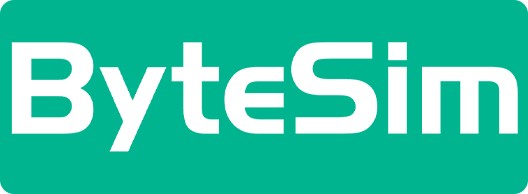IMEI, DMEI, ICCID, UDID, UUID eSIM Every Thing You May Not Know About Your Mobile Device!
Sep 28,2023 | Tom
IMEIMEIDDifferences Between MEID and IMEINetwork CompatibilitySystem/Application UsageLocation and FormatICCIDUDIDUUIDDifferences Among ICCID, UDID, and UUIDUsageApplicationScope

Photo woman using her smartphone and connecting hands close up
IMEI
IMEI is a 15-digit number used to identify mobile devices in GSM (Global System for Mobile Communications) network technology.
-
It provides a unique identifier for each mobile device, enabling network operators to track and authenticate devices.
-
Manufacturers use the IMEI to ensure device integrity, trace stolen devices, or provide customer support.
IMEI numbers can be found by dialing *#06# on the device, checking under the battery pack, on the device's packaging, or within the device settings.
MEID
MEID is a 56-bit identifier used in CDMA (Code Division Multiple Access) network technology, predominantly used by Verizon and Sprint in the United States.
-
Similar to the IMEI, MEID helps identify and track mobile devices within the CDMA network.
-
It is burned into the device hardware and resists modification, providing a unique identification for CDMA devices.
-
MEID numbers may be hexadecimal (14 digits) or decimal (18 digits) and can also contain a check digit.
-
The location of MEID numbers on devices may vary depending on the manufacturer and device model.
Differences Between MEID and IMEI

photo hands touching a smartphone
Network Compatibility
IMEI is used in GSM networks, while MEID is used in CDMA networks. The technologies and network infrastructure behind GSM and CDMA differ, leading to the need for separate identification systems.
System/Application Usage
IMEI is widely recognized globally and used by various carriers worldwide. MEID has more prominence in CDMA networks, primarily in the United States.
Location and Format
MEID and IMEI numbers may have different physical locations on devices and can be represented in distinct formats (hexadecimal or decimal).
ICCID
ICCID(Integrated Circuit Card Identifier) is a unique identifier used to identify a SIM card.
-
It consists of a 1 9 or 20-digit numeric code that includes the Mobile Country Code (MCC) , Mobile Network Code (MNC) , and a unique serial number.
-
The ICCID is embedded within the SIM card and is used by the network operator to validate and authenticate the SIM card for network connectivity.
UDID
UDID (Unique Device Identifier) is a calculated string used to identify Apple iOS devices.
It is a 40-character alphanumeric code assigned to every iOS device, including iPhones, iPads, and iPod Touch.
The UDID is primarily used by app developers for app installation, registration, and Mobile Device Management (MDM) enrollment.
It provides a unique identifier for each iOS device, allowing app developers and MDM systems to link specific devices to user accounts or profiles.
UUID
UUID (Universally Unique Identifier) is a 128-bit identifier used to uniquely identify information in computer systems.
-
It can be generated using various algorithms and formats, such as the widely used UUID version 4 (randomly generated).
-
UUIDs are not limited to mobile devices and are used in various contexts, including software development, database systems, and distributed computing.
-
UUIDs provide a globally unique identification mechanism, ensuring minimal chances of collision when creating identifiers.
Differences Among ICCID, UDID, and UUID

photo business hand with mobile phone .
Usage
ICCID is specific to SIM cards, UDID is specific to Apple iOS devices, and UUID is a general identifier used in various computing contexts.
Application
ICCID is used for SIM card validation and authentication, UDID is primarily used for app installation and MDM enrollment in iOS devices, and UUIDs serve as unique identifiers in diverse computer systems.
Scope
ICCID is specific to SIM cards and associated network connectivity, UDID is limited to Apple iOS devices and app ecosystem, and UUIDs are used in a wide range of computing systems.
It's important to note that the specific usage and implementation of ICCID, UDID, and UUID can vary based on the context and industry requirements.
ByteSIM , a promising eSIM provider provides the suitable eSIM plans for you!




